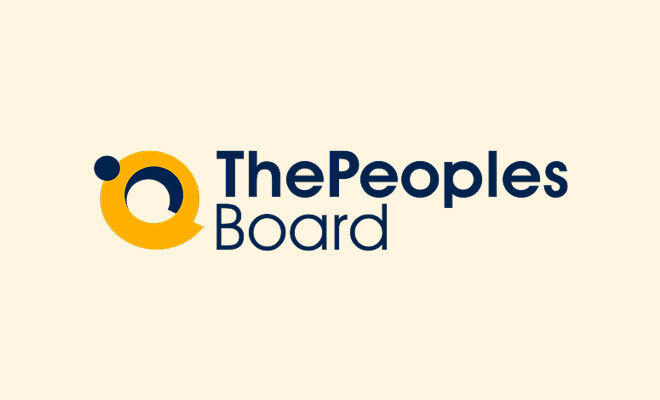Becoming a Chief Human Resources Officer (CHRO) is a dream come true for any and all HR professionals. The executive position comes with high responsibilities but also adds much prestige to one’s career.
For those aspiring to reach the pinnacle of the HR profession, it’s essential to understand the career progression and skills needed at each stage. As someone who has just entered the HR field, the journey might be long and full of ups and downs, but keeping the end goal in mind is what matters the most.
Will the path to become a CHRO be easy? Possibly not. But with the right mindset and proper planning, the dream is far from unachievable. This guide outlines the complete HR career path, from entry-level roles to top leadership positions, with insights tailored to the Indian job market.
Why Pursue a Career in HR?
A career in HR goes beyond hiring and payroll management. It involves:
- Driving employee engagement.
- Building talent strategies aligned with business goals.
- Managing organizational change and workforce development.
HR professionals are integral to the success of any organization, making it an attractive field for individuals passionate about people and strategy.
Laying the Foundation Through Entry-Level Roles
For beginners, HR roles focus on operational tasks and learning the basics of the profession.
Common Entry-Level Roles
- HR Assistant: Supporting HR operations, maintaining records, and assisting with recruitment.
- Recruiter: Managing candidate sourcing, interviews, and onboarding.
- HR Coordinator: Handling employee queries, benefits administration, and compliance documentation.
Skills Required
- Communication and interpersonal skills.
- Understanding of HR software like HRIS.
- Basic knowledge of labor laws, especially Indian regulations like the Shops and Establishments Act.
How to Get Started
- Education: A bachelor’s degree in HR, business administration, or a related field is essential.
- Certifications:
- Certified Human Resources Professional (CHRP) for foundational knowledge.
- Talent Acquisition Specialist certification for aspiring recruiters.
Building Expertise in Mid-Level Roles
Mid-level roles require specialized knowledge and the ability to manage teams and processes.
Common Mid-Level Roles
- HR Generalist: Overseeing multiple HR functions like recruitment, training, and employee relations.
- HR Manager: Leading a team to implement HR policies and drive employee engagement.
- Training and Development Manager: Designing and delivering employee development programs.
- HR Business Partner (HRBP): Aligning HR strategies with business objectives.
Skills Required
- Strong analytical skills for workforce planning.
- Expertise in talent management and performance appraisals.
- Advanced knowledge of labor laws, including the Factories Act and EPF regulations in India.
How to Grow
- Education: Consider a master’s degree or MBA in HR.
- Certifications:
- SHRM Certified Professional (SHRM-CP).
- HR Analytics certifications to harness data for strategic decisions.
Leading HR Strategy at Senior-Level Roles
Senior roles involve strategic decision-making and influencing organizational goals.
Common Senior-Level Roles
- HR Director: Overseeing all HR functions and shaping talent strategies.
- VP of HR: Collaborating with C-suite leaders to align HR initiatives with business goals.
- Head of Talent Acquisition: Developing recruitment strategies for organizational growth.
Skills Required
- Leadership and team management.
- Proficiency in change management and organizational development.
- Strategic planning with a focus on business impact.
How to Advance
- Education: Executive MBA programs tailored for HR professionals, such as those offered by IIMs or XLRI.
- Certifications:
- SHRM Senior Certified Professional (SHRM-SCP).
- Advanced labor law certifications like ADLL (Advanced Diploma in Labor Laws).
Becoming a CHRO
The CHRO is a member of the executive team, driving organizational success through effective people strategies.
Role Overview
- Crafting HR policies that align with long-term business objectives.
- Leading diversity, equity, and inclusion (DEI) initiatives.
- Managing HR budgets and overseeing global HR operations (in multinational companies).
Skills Required
- Business acumen to collaborate with the CEO and board members.
- Expertise in global HR practices and compliance.
- Visionary leadership to drive cultural and organizational transformation.
How to Become a CHRO
- Education: An advanced degree or executive leadership program.
- Certifications:
- Global Professional in Human Resources (GPHR).
- Strategic HR Leadership certifications from institutions like Harvard or IIMs.
Key Skills to Develop at Every Stage
Regardless of your career stage, mastering these skills is critical for success:
- Emotional Intelligence: Building strong relationships with employees and leaders.
- Data-Driven Decision Making: Leveraging HR analytics for strategic insights.
- Digital Literacy: Familiarity with HR technology and platforms like SAP SuccessFactors or Workday.
- Legal Knowledge: Understanding Indian labor laws and global compliance requirements.
The HR Career Path
| Career Stage | Typical Roles | Key Qualifications | Focus Areas |
| Entry-Level | HR Assistant, Recruiter | Bachelor’s Degree, CHRP | Learning the basics of HR operations |
| Mid-Level | HR Manager, HR Business Partner | MBA in HR, SHRM-CP | Specializing in HR functions |
| Senior-Level | HR Director, VP of HR | Executive MBA, SHRM-SCP | Leading HR teams and strategies |
| CHRO | Chief Human Resources Officer | Global Certifications like GPHR and SHRM-SCP | Strategic HR leadership |
Tips for Navigating Your HR Career Path
- Network Actively: Join HR communities like NHRD (National HRD Network) or SHRM India. Attend HR conferences and webinars to stay updated.
- Invest in Learning: Upskilling through certifications or courses keeps you relevant in a competitive job market.
- Seek Mentorship: Learning from experienced HR professionals can provide valuable guidance.
- Adapt to Change: Embrace technology and data-driven approaches to remain future-ready.
Conclusion
The journey from an HR beginner to a CHRO is challenging but rewarding. You can climb the HR ladder successfully by focusing on continuous learning, gaining diverse experiences, and building strong leadership skills.
In India, where the demand for skilled HR professionals grows, opportunities abound for those ready to innovate and lead. Whether you’re just starting out or aiming for the C-suite, chart your path with determination and leave a lasting impact on human resources.



